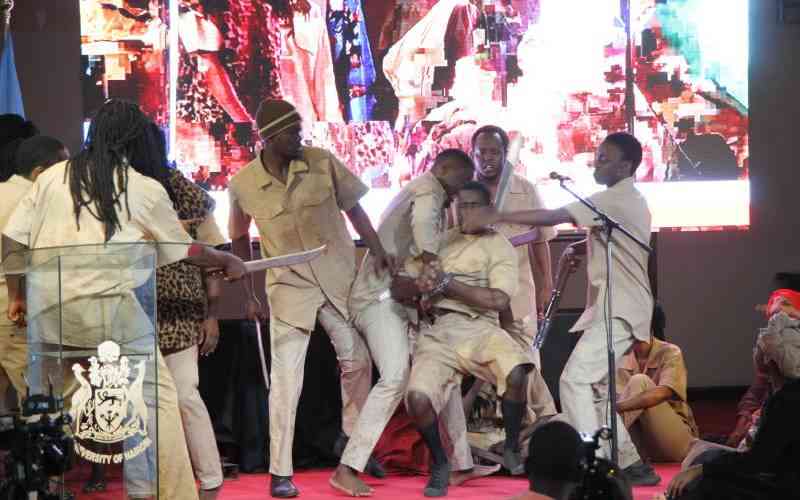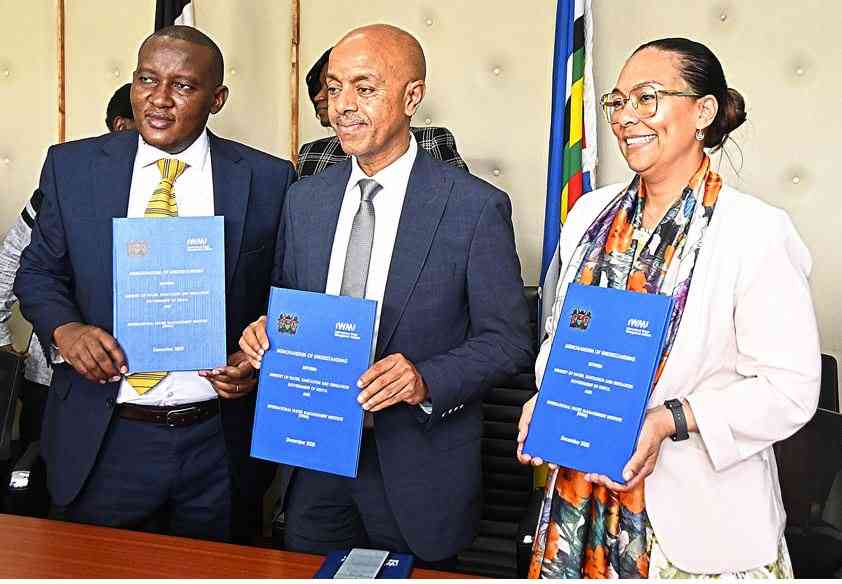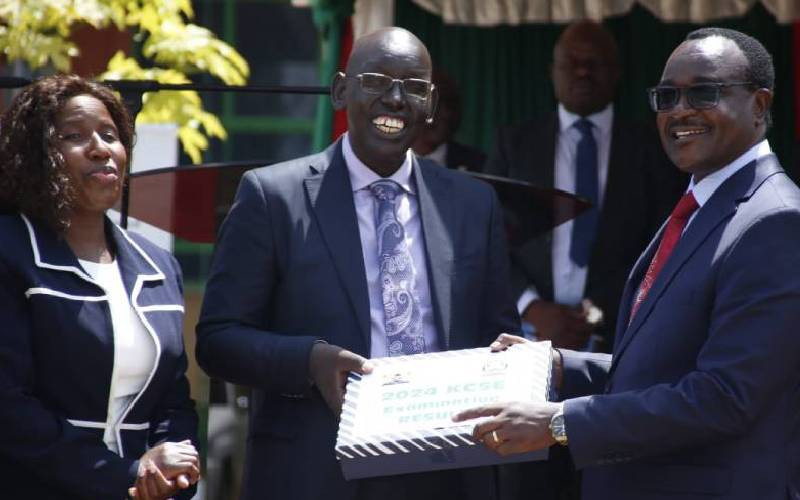The University of Nairobi hosted a national tribute for the late Prof Ngugi wa Thiong’o at the Taifa Hall on Friday.
The Ngũgĩ family and the university fraternity were joined by People’s Liberation Party leader Martha Karua, the literary community, Kamukunji Constituency Hon. Yusuf Hassan, University of Nairobi’s (UoN) Travelling Theatre, Kamirithu residents, and students in celebrating the life and works of the global literary icon.
The university’s chair for the Department of Literature, Professor Miriam Maranga-Musonye, recalled an online meeting with Ngũgĩ five days before his passing to plan a symposium to honour him, where he joined briefly and smiled. Professor Musonye commended the literary, intellectual and revolutionary contributions of Ngũgĩ’s works.
“His pen wrestled with injustices, history and identity. He also helped us embrace the African language, advocating for languages as more than words but as a tool of dignity,” she said.
She continued, “Writing from English to Gĩkũyũ was not just a linguistic shift but a political act and an act of self-definition. That’s a legacy we’ll inherit from this man of letters.”
Ngũgĩ helped in the formation of the Kamiriithu Community Education and Cultural Centre in 1976. With the late Ngũgĩ wa Mirii and the members of the Kamiriithu community who also came to honour him, he co-wrote the play Ngaahika Ndeenda (I Will Marry When I Want).
“Through the Kamiriithu, he taught us that the classroom was not the only sight for learning. He built a theatre with people. The same spirit of Kamiriithu lives in the Travelling Theatre we see today,” she said.
She said this was a celebration in a place where he advocated for African languages and literature as a lecturer and head of the Department of Literature. Professor Musonye presently sits at the same office as Ngũgĩ did from 1973 to 1977.
“It is fitting to meet at a place tied to his intellectual and artistic journey. He was a scholar, teacher, writer, and revolutionary who showed that a written word could stir the soul and unsettle empires,” she said.
She likened his literary impact to the fictional Honia River in Ngũgĩ’s novel, The River Between, that will continue to flow and live in the recovered African languages and inspire future generations.
Kiarie Kamau, CEO of East African Educational Publishers, recollected the day he first met the author – James Ngũgĩ then – when he submitted a manuscript for Weep Not Child in 1960.
When he dropped his English name ten years later, Kamau marched his steps. Moreover, he acclaimed him for continuing to publish with them despite the fact that he became globally renowned.
He described Ngũgĩ’s books as symbols of courage and carriers of history, revolution and identity, and his shift to writing in Gĩkũyũ influenced the world of publishing in indigenous languages.
Stay informed. Subscribe to our newsletter
“It was in the 1970s that Ngũgĩ became a powerful voice that speaks truth to power. Ngaahika Ndeenda was a revolutionary act, and it championed the language and consciousness of ordinary Kenyans,” he said.
Professor Ayub Gitau, Deputy Vice-Chancellor for Academic Affairs, remembered the literary figure’s legacy as both institutional and historical and cultural, which scholars continue to engage with.
“Writing in Gĩkũyũ was a deliberate shift of affirming the existence of African pride and the role of literature in liberation,” he commented.
The Ngũgĩ family singularly performed a song, poem, and an excerpt virtually. A recorded video of Ngũgĩ’s son, Tee Ngũgĩ, reciting A Crying of Winter, a poem he wrote in his moments of grief, played.
Kimunya wa Ngũgĩ read an excerpt of his father’s novel, Devil on the Cross. Modern Artists of the University of Nairobi (MAUoN) performed an excerpt of Ngũgĩ’s play, ‘The Black Hermit’.
Kamukunji MP Yusuf Hassan reflected on Ngũgĩ’s legacy: “I’ve seen Ngũgĩ speak in Nairobi, London, Johannesburg, and New York. He always humble, always powerful. He educated and empowered people to speak for themselves in their languages. Today, we celebrate not just a writer but history itself.”

























